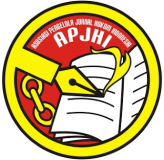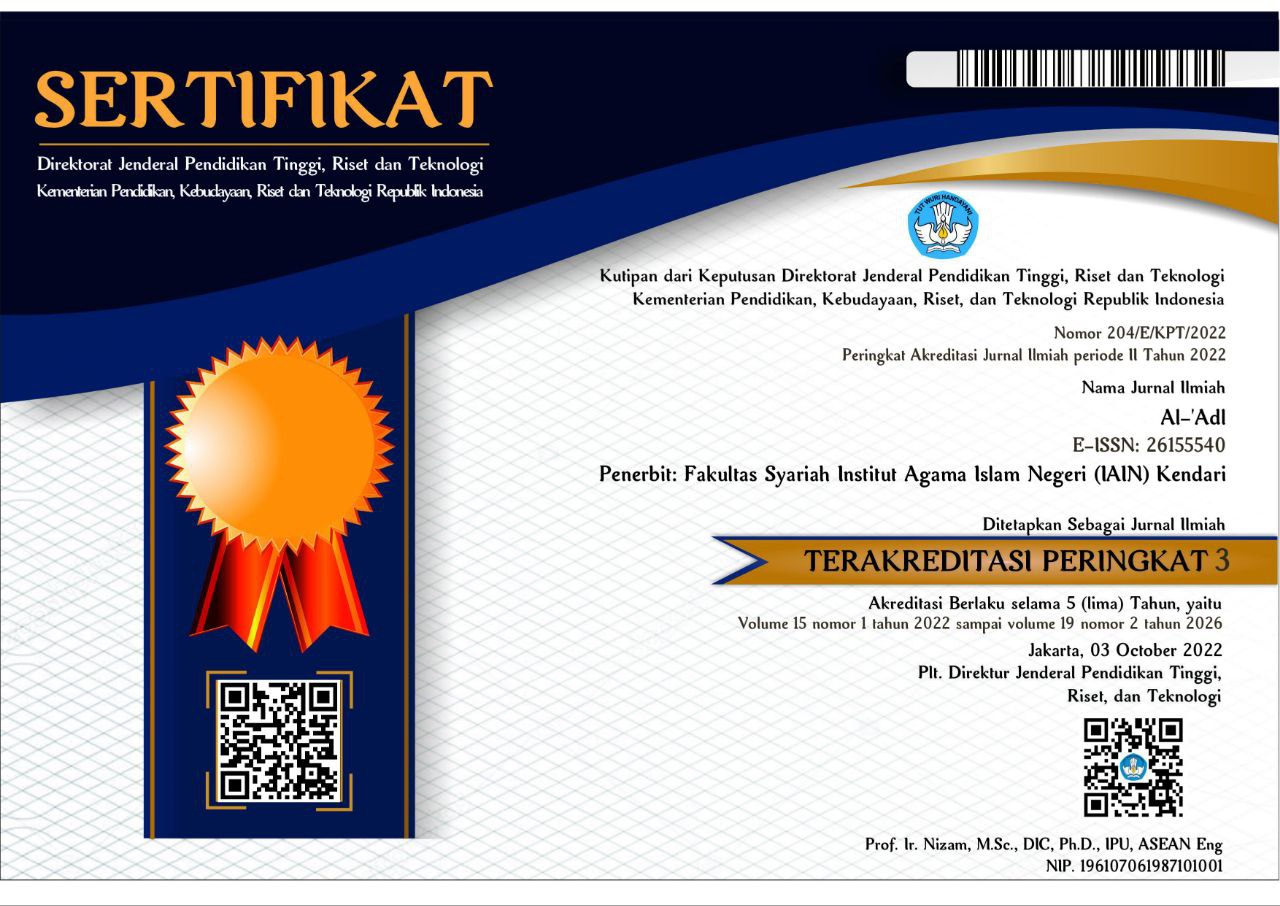Study of Government Policy in the Lisu Massikola Community Movement Program in Bone Regency
Abstract
Keywords
Full Text:
PDFReferences
Abdullah, Muhammad Rijal, Pairin2 & Rasmi. “Analisis Faktor Penyebab Anak Putus Sekolah Di Kecamatan Amonggedo Kabupaten Konawe.” Jurnal Pendidikan Islam 1.1 (2020): 19–25.
Albaker, Khaled. “Analytical view of Bahrain’s government schools’ performance: A quality perspective.” SAGE Open 7.4 (2017): 1–6.
Alduais, Ahmed, and Meng Deng. “Stakeholders’ perceptions of equity in providing special education and inclusive education services in China: Zero rejection and multiple provision mechanisms.” International Journal of Chinese Education 11.3 (2022): 1–20.
Bone.Go.Id. Bone Launching Gemar Limas, 8646 Anak Kembali Bersekolah. Bone, 2020. Available: https://bone.go.id/2020/12/21/bone-launching-gemar-limas-8646-anak-kembali-bersekolah/.
Cooc, North, and Man Yang. “Diversity and Equity in the Distribution of Teachers With Special Education Credentials.” AERA Open 2.4 (2016): 233285841667937.
Dorner, Lisa M., Kelly Harris, and Blake Willoughby. “Policy Enactment During a Pandemic: How One School Responded to COVID-19 in Negotiation With a Nonprofit Partner.” AERA Open 8.1 (2022): 1–16.
Edgerton, Adam K., and Laura M. Desimone. “Teacher Implementation of College- and Career-Readiness Standards: Links Among Policy, Instruction, Challenges, and Resources.” AERA Open 4.4 (2018): 1–22.
Fenwick, Tara, and Richard Edwards. “Exploring the impact of digital technologies on professional responsibilities and education.” European Educational Research Journal 15.1 (2016): 117–131.
Gu, Yuanyuan, and Jhorland Ayala Garcia. “Educational expenditure efficiency in China: the role of the governor’s characteristics.” Applied Economics 53.25 (2021): 2832–2847. Available: https://doi.org/10.1080/00036846.2020.1869171.
Hill, Michael, Peter L. Hupe, and Peter Hupe. Implementing Public Policy: Governance in Theory and in Practice. London: SAGE Publication, 2002.
Jameson, J. Matt et al. “Free Appropriate Public Education in the Time of COVID-19.” Rural Special Education Quarterly 39.4 (2020): 181–192.
Jayadeva, Sazana et al. “Are Spanish Students Customers? Paradoxical Perceptions of the Impact of Marketisation on Higher Education in Spain.” Sociological Research Online 26.1 (2020): 185–204.
Kakuru, Doris M. “Navigating Student Motherhood in a Precarious Urban Context: Perspectives from Higher Education in Uganda.” Education and Urban Society 54.6 (2022): 731–749.
Karatzimas, Sotirios. “The beneficial role of government accounting literacy in developing participatory citizens.” Accounting Education 29.3 (2020): 229–246. Available: https://doi.org/10.1080/09639284.2020.1737547.
Kosunen, Sonja, and Petteri Hansen. “Discursive narratives of comprehensive education politics in Finland.” European Educational Research Journal 17.5 (2018): 714–732.
Lammers, Imke, Minna M.L. van Gerven-Haanpää, and Oliver Treib. “Efficiency or compensation? The global economic crisis and the development of the European Union’s social policy.” Global Social Policy 18.3 (2018): 304–322.
Li, Dongmei. “Investigating Equity-Minded Migrant Education Policies in Shanghai From Migrant Parents’ Perspectives.” ECNU Review of Education 3.2 (2020): 357–379.
Lietzén, Outi. “The positioning of dual qualification studies in Finnish upper secondary education and government policy since the 1980s.” European Educational Research Journal (2022): 1–26.
Morin benjamin. “Strategi dinas pendidkan dalam meminimalisir anak putus sekolah di kota Bitung.” Journal of Chemical Information and Modeling 53.9 (2018): 16–29.
Muñiz, Raquel. “Education Law and Policy in the Time of COVID-19: Using a Legal Framework to Expose Educational Inequity.” AERA Open 7.1 (2021): 1–18.
Ouedraogo, Issoufou, Yukiko Hirakawa, and Kyoko Taniguchi. “A fair chance for acquiring literacy skills? Suggestions for primary school dropouts in rural Burkina Faso.” Education 3-13 49.4 (2021): 433–447. Available: https://doi.org/10.1080/03004279.2020.1733042.
Parziale, Fiorenzo, and Ivano Scotti. “Education as a Resource of Social Innovation.” SAGE Open 6.3 (2016): 1–9.
Pondaag, Citra Ivon, Jones X Pontoh, and Merry C.N. Rumagit. “Analisis Program Pengentasan Kelompok Anak Putus Sekolah Oleh Pemerintah Kabupaten Minahasa Tenggara di Kecamatan Belang.” Jurnal Equilibrium 3.1 (2022): 18–27. Available: https://ejurnal.unima.ac.id/index.php/equilibrium/article/view/4130/2288.
Pranomo, Agung. Gerakan Lisu Massikola di Bone, 10.513 Anak Putus Sekolah Kembali Bersekolah. Sulawesi Selatan, 2022. Available: https://www.detik.com/sulsel/sulsel-ewako/d-6021215/gerakan-lisu-massikola-di-bone-10513-anak-putus-sekolah-kembali-bersekolah.
Rokhmaniyah et al. Anak Putus Sekolah, Dampak, dan Strategi Mengatasisnya. Surakarta: CV. Pajang Putra Wijaya, 2022. Available: https://books.google.co.id/books?uid=116868994962272247938&hl=en.
Septianto, Herlian. “Pemetaan Anak Putus Sekolah Di Kota Yogyakarta Tahun 2016-2020.” Spektrum Analisis Kebijakan Pendidikan 10.4 (2021): 1–11.
Sosina, Victoria E., and Ericka S. Weathers. “Pathways to Inequality: Between-District Segregation and Racial Disparities in School District Expenditures.” AERA Open 5.3 (2019): 1–15.
Triwiyanto, T. “Bukan Sekedar Subsidi Pulsa, Untuk Mengurangi Angka Putus Sekolah Dampak Pandemi Covid-19.” Seminar Nasional - Jurusan Administrasi Pendidikan Fakultas Ilmu Pendidikan Universitas Negeri Malang 200 (2020): 325–335.
Ubels, Hiska, Bettina Bock, and Tialda Haartsen. “An evolutionary perspective on experimental local governance arrangements with local governments and residents in Dutch rural areas of depopulation.” Environment and Planning C: Politics and Space 37.7 (2019): 1277–1295.
Utami, Rido, Harisnawati, and Waza Karia Akba. “Faktor Penyebab Anak Putus Sekolah Di Desa Sukadamai Kecamatan Rimbo Ulu Kabupaten Tebo Provinsi Jambi Rido.” Jurnal Pendidikan Dan Konseling 4.1 (2022): 5387–5397.
Wang, Lei, and Jian Yang. “When overseas education meets a changing local context: The role of Tokyo higher technical school in the industrial modernisation of China in the early twentieth century.” History of Education 48.5 (2019): 607–629. Available: https://doi.org/10.1080/0046760X.2019.1585584.
Wang, Tao. “Competence for Students’ Future: Curriculum Change and Policy Redesign in China.” ECNU Review of Education 2.2 (2019): 234–245.
DOI: http://dx.doi.org/10.31332/aladl.v16i2.5926
Refbacks
- There are currently no refbacks.
Copyright (c) 2023 Nur Faikah

This work is licensed under a Creative Commons Attribution 4.0 International License.








Organized by : Fakultas Syariah
Published by : Institut Agama Islam Negeri (IAIN) Kendari
Jl. Sultan Qaimuddin No. 17, Kec. Baruga, Kota Kendari, Provinsi Sulawesi Tenggara
phone. +62401-3193710
Fax. +62401-3193710
Email: [email protected]









